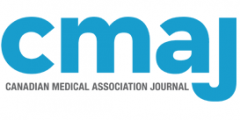New Publication: Prevalence and nature of manufacturer-sponsored patient support programs for prescription drugs in Canada: a cross-sectional study
by
Quinn Grundy, Ashton Quanbury, Dana Hart, Shanzeh Chaudhry, Farideh Tavangar, Joel Lexchin, Marc-André Gagnon and Mina Tadrous
Members of our research team and affiliates have published a new pulication in CMAJ (the Canadian Medical Association Journal), a peer-reviewed general medical journal that publishes original research, commentaries, analyses and reviews, clinical practice updates and thought-provoking editorials.
Abstract:
Background: Globally, pharmaceutical companies offer patient support programs in tandem with their products, which aim to enhance medication adherence and patient experience through education, training, support and financial assistance. We sought to identify the proportion and characteristics of such patient support programs in Canada and to describe the nature of supports provided.
Methods: We conducted a cross-sectional study to identify and characterize all marketed prescription drugs available in Canada as of Aug. 23, 2022, using the Health Canada Drug Product and CompuScript databases. To describe the nature of supports provided, we conducted a content analysis of publicly available patient support program websites and Web-based documents. Using logistic regression, we identified characteristics of drugs associated with having a patient support program including brand-name or branded generic (generic medications with a proprietary name), orphan (medications for rare diseases) or biologic drug status; estimated total cost of prescriptions dispensed at retail pharmacies; and price per unit.
Results: Of the 2556 prescription drugs marketed by 89 companies in the study period, 256 (10.0%) had a patient support program in Canada. Many of the 89 drug manufacturers (n = 55, 61.8%) offered at least 1 patient support program, frequently relying on third-party administrators for delivery. Brand-name and branded generic medications, biologic agents and drugs with orphan status were more likely to have a patient support program than generic drugs. Compared with drugs priced $1.01–$10.00 per unit, drugs priced $10.01–$100.00 per unit were nearly 8 times more likely to have a patient support program (adjusted odds ratio 7.54, 95% confidence interval 4.07– 14.64). Most sampled patient support programs included reimbursement navigation (n = 231, 90.2%) and clinical case management (n = 223, 87.1%).
Interpretation: About 1 in 10 drugs marketed in Canada has a manufacturer-sponsored patient support program, but these are concentrated around brand-name, branded generic, biologic and high-cost drugs, often for rare diseases. To understand the impact of patient support programs on health outcomes and sustainable access to cost-effective medicines, greater transparency and independent evaluation of patient support programs is necessary.
